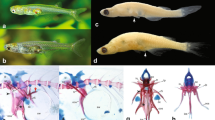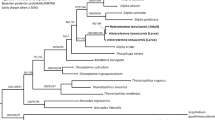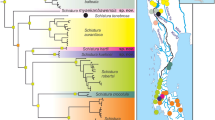Abstract
THE object of my reply to Prof. MacBride (NATURE, December 16, 1922, p. 806) was not to discuss the classification of Asteroids, but to protest against the character of his unprovoked attack on me. An adequate discussion of the question which group of starfishes is the more primitive, the Phanerozonia or the Spinulosa, requires very much more space than that allotted to a correspondence in NATURE. What I wanted to prove—and, I think, did prove—was the want of foundation in Prof. MacBride's sweeping statement that all admit the Spinulosa to be the more primitive group, tending to represent my view as to this point as perfectly absurd.
This is a preview of subscription content, access via your institution
Access options
Subscribe to this journal
Receive 51 print issues and online access
$199.00 per year
only $3.90 per issue
Buy this article
- Purchase on Springer Link
- Instant access to full article PDF
Prices may be subject to local taxes which are calculated during checkout
Similar content being viewed by others
Author information
Authors and Affiliations
Rights and permissions
About this article
Cite this article
MORTENSEN, T. Echinoderm Larvæ and their Bearing on Classification. Nature 111, 322–323 (1923). https://doi.org/10.1038/111322b0
Issue Date:
DOI: https://doi.org/10.1038/111322b0
This article is cited by
Comments
By submitting a comment you agree to abide by our Terms and Community Guidelines. If you find something abusive or that does not comply with our terms or guidelines please flag it as inappropriate.



